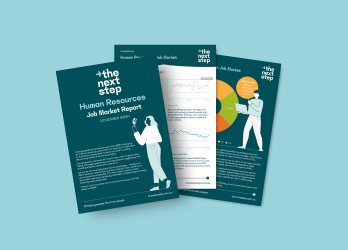The Importance of the Employee Experience and Onboarding
The employee experience and onboarding are critical links to support a productive and engaged workforce. This article explores the role you, as a hiring manager, play in supporting effective onboarding and integration of new hires. Learn about common onboarding mistakes, strategies for success, how to measure the effectiveness of your efforts, and the importance of investing in this process for long-term success.

The importance of employee experience and onboarding
The employee experience begins with the first point of contact during the hiring process. An individual's journey through the interview process, the period between their notice period and their first day is crucial to ensure their new chapter is set up for success. As a hiring manager, your interactions represent the organisation and showcase its core values from the outset.
Investing in onboarding
It is imperative to invest in the short-term onboarding process to ensure long-term success. Let's face it – first impressions matter, especially when it comes to new employees. The way you welcome and integrate newcomers sets the tone for their entire journey with your company. Get it right, and you'll have engaged, productive team members who stick around for the long haul. Get it wrong, and you might as well leave a revolving door at the entrance.
An employee's decision-making process
Changing roles involves a significant decision-making process. Your new hire not only considers the role at hand but takes the time to assess the business, the leader, and the culture that continues through the critical phase of early integration to settlement, where employees continue to sharpen their view on the business and whether they have made the right long-term decision. Recent discussions With who? E.g. with a range of HR professionals/organisations indicate that almost half of new employees will decide within the first 30 days if their new workplace is the right fit for them.
It's interesting to see those that do stay in a role but resign from a position within the first 12 months also suggest that it was that their experience was not what they had expected from initial discussions. Where does 12-mth stat come from?
Common onboarding mistakes
In our role as consultants, we see firsthand the long-term effects poor onboarding can have on the employee experience. Probationary periods are not only an impactful period of decision making for you as the employer, but also a critical period for employees as they continue to assess their new environment.
Common themes that we see impacting a candidate’s experience poorly include a lack of preparation, such as not having a clear onboarding plan or agenda, and poor direction and accountability of support on the first day. Additionally, insufficient workforce introductions, issues with technology and/or desk setup, and lack of transparency about challenges during the hiring process can create negative experiences. Candidates have also shared they are keen to contribute early and have a sense of purpose through role clarity and opportunity, lack of this further contributes to employee dissatisfaction.
Employers often mistakenly believe onboarding only lasts for the first month and expect culture to be conveyed solely through policies, which can undermine the onboarding process and overall employee experience.
Effective onboarding strategies
Your role as a hiring manager is pivotal in facilitating a positive onboarding experience. Your involvement can significantly influence an employee’s decision to stay with the company long-term.
Successful onboarding hinges on four key pillars:
- Begin early: Start the onboarding process as soon as the employment contract is signed. Develop a comprehensive plan that integrates across different departments, covering the first 90 days and beyond. If possible, arrange a brief call or informal meet-up with your new hire before their start date to build an early rapport and address any pre-start questions.
- Create a welcoming environment: It's about more than just providing a desk, some logins and a computer. Make new hires feel like part of the team from day one. This could involve team lunches and 'get to know you' sessions. Consider assigning a buddy or mentor.
- Build strong connections: Help newcomers forge relationships within the organisation. This includes introductions to key team members, networking opportunities, and clear communication channels.
- Provide clear guidance: Eliminate guesswork by clearly outlining roles, responsibilities, and expectations. Offer resources, training, and regular check-ins across the first 90 days and beyond to ensure new hires feel supported and informed.
Measuring success
Regularly gather feedback from new hires about their onboarding experience and how they are integrating into the business. Track key metrics such as retention rates, time-to-productivity, and employee satisfaction scores. Use these insights to continuously refine and improve your onboarding program.
How we help support you
We know a lot of time and effort goes into finding the right fit. Working in partnership with a specialist HR consultancy like us, we take the time to also keep in close contact with the employee, especially during this critical period.
Transparent and open conversations, providing an opportunity for candidates to disclose any initial concerns and staying in touch allows us to continue our partnership with you and ensure we are doing our part to facilitate a welcoming and nurtured experience. Whilst our interactions play a part in this process, it is the environment you set which shapes this immensely.
Investing in the future
Remember, a thorough onboarding process is an investment in your company's future. It leads to higher employee satisfaction, increased retention rates, and a stronger overall company culture. By prioritising onboarding, you're not just filling a position – you're building a team that's set up for long-term success.
Victoria Triantis is a consultant, based in VIC. Her role at The Next Step focuses on supporting both generalist and specialist HR positions from early career to the mid-level market.
Looking for a new role? Search HR jobs
Need help filling a position? Contact Us
Other articles you might be interested in
Let’s connect
SYDNEY
THe Commons, LEVEL 4
388 George Street
Sydney NSW 2000
GADIGAL land
MELBOURNE
LEVEL 1, SUITE 3
500 BOURKE ST
MELBOURNE VIC 3000
EASTERN KULIN LAND
BRISBANE
Level 14
241 Adelaide st
Brisbane QLD 4000
YUGGERA LAND
The Next Step acknowledges and pays respect to the Traditional Custodians of the lands on which we work.
© THE NEXT STEP 2025



